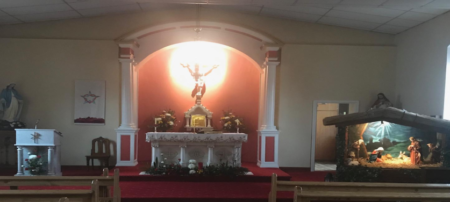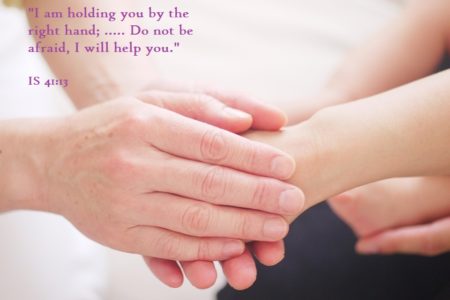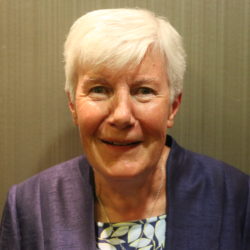During COVID-19 In Care Of The Older Adult

Life changed for each one of us when, on the evening of the 15th March 2020 at 9pm, the then Taoiseach, Leo Varadkar, announced to the nation on National Television that the entire country was going into lockdown. I will never forget the feelings that I experienced that night, among them, fear and anxiety. What will it be like to work in the hospital with all the restrictions that will be imposed on us as nurses and carers?
How will we keep ourselves safe, so that the residents we care for will in turn be safe; will our working day change, what will the routine be like, what will happen if the virus gets into the hospital? All these questions laced with apprehension were going through my head because, like everyone else, we never experienced anything like this.
Life did change in Midleton Community Hospital; we now have to wear PPE (personal protective equipment) when caring for our residents and this proved a challenge at the beginning. Working in PPE has not only been a physical change for us, but it has fundamentally changed the way we communicate with our residents and colleagues. As a nurse caring for older adults, especially those with dementia who have difficulty communicating and comprehending, this sometimes proved to be a big barrier in the delivery of person-centred care. At times, we could see the fear in their eyes when we were looking after them as we no longer looked familiar to them with masks and gowns. This was a big change for us too as carers and I cannot imagine what it must have been like for the residents that could not communicate their feelings to us.
On a practical level, I wear glasses and this presented itself as a frustration along the way. The glasses kept fogging over and l seemed to be in a perpetual haze! However, those of us with this shared problem learned a few tricks and got constant tips from each other on how to maximise visibility, we were learning new things every day.
Communication, both verbal and non-verbal, is paramount in the delivery of care. We were very conscious of this for those residents who could not express their fears or anxieties. Residents can be quite nervous with change, and a kind smile and a soft touch can go a long way to reassure and console them.
We need to communicate clearly, explain what is happening, try to make sure that they understand what is being said, and this can be quite challenging while wearing PPE. We now smile with our eyes and soften our voices to allay any fears that the resident may have. We took so much for granted before all this happened; holding someone’s hand and giving them a hug is so much part of caring and connecting. For now, this is on hold and it is missed.
Older adults are at a greater risk of contracting COVID-19, and those with pre -existing problems are more vulnerable. This pandemic poses a great challenge in taking care of them, and with the on-going lockdown, it becomes more difficult to reach out to those family members who cannot see their loved one.
When lockdown restricted visits to hospitals, a different type of communication had to take place in the form of telephone calls, skype or video calls via Whats App. This did prove confusing for some residents and indeed family members. The biggest fear during this lockdown is to feel alone, disconnected and isolated. Staying in touch was of paramount importance for the psychological and emotional well-being of both the resident and their loved ones.
As carers working in care of the older adult, we were constantly getting updates and new guidelines from the HSE (Health Service Executive), HPSC (Health Protection Surveillance Centre), NPHET (National Public Health Emergency Team), and HIQA (Health Information and Quality Authority). These guidelines and preventive measures are implemented and as the governing bodies continued to learn more about the virus these guidelines are changed accordingly. So, life is all about making sure we refer to the COVID folder daily and update our practices accordingly.
Individual behaviour within the hospital changed and co-operation and solidarity from all disciplines was crucial in preventing COVID-19 from entering our building. As an individual, I can take precautions and these continue to be my first line of defence, however, no single measure in isolation will control the spread of COVID-19. The most effective approach is one which involves a combination of societal and personal and protective measures, and these include regular hand washing, social distancing, cough etiquette and all those other guidelines that each one of us are advised to adhere to.
Our work, routine and presence has also changed, we now have become dancers, artists, music makers, hairdressers, bingo callers and gardeners. This is as a result of our usual volunteers and activity people being unable to come into the hospital. It has brought us closer as a team and to the residents. We now spend more personal time with them. We sit with, listen and share and some days we actually have a good laugh and I come away from work thinking “we did well today”. Being able to bring our residents to visit the chapel and pray with them is a great blessing and especially now, that the Chapel is closed to the wider community, it is the residents “sacred place”.

Swabbing and testing is part of our working life and this may happen weekly or fortnightly depending on the numbers nationally. We are so used to it at this stage but, at the beginning it was most uncomfortable especially the nasal swab. The swabbing brings its own anxiety too, we worry in case any staff member will get a positive result. It still causes unease and we don’t breathe freely until we get that text 24 to 48 hours later to say “Undetected”. We are blessed to have reached this stage in the pandemic and have been COVID-19 free. We have all received the second dose of the vaccine by now and with the vaccine came a sigh of relief. However, we must still be cautious and adhere to the guidelines and advice from the governing bodies.
I never thought, in all my years nursing in caring for the older adult, that life could change so dramatically in every aspect. It is hard to believe that where there was always a loud and noisy staff room it is now so quiet with only four people allowed to be there at any one time. Conversation has now changed from talking about children going to school, shopping, holidays, to COVID. If I meet a colleague on the corridor, I must be conscious that I am wearing my mask and am social distancing and we just share pleasantries and go our separate way.
Where there used to be concerts and so many visitors at Christmas the wards were quiet and at times eerily so. We did our best to entertain the residents and ourselves, we tried to make the best of the situation.
Reflecting on the past year, the end of life care was and is the most heart wrenching and upsetting for the family, friends and staff and, particularly, for the resident who is on that journey. Normally, there was no time constraint for visiting a loved one or the number of people who could visit and spend time with them. Now, it is two nominated family members, who must wear full PPE during their visit, and the time may be limited, in line with public health guidelines. However, we do what we can to make this precious time as easy as it can be for everyone involved.

Midleton Community Hospital has served its local community spanning many generations, it is part of history and there are some interesting articles written about it. We too, are living and making history with this pandemic and I am sure that the records will be fascinating to read.
As we look to the future, we will have a new 50 bed hospital built on the grounds, work has started and this is a very positive and exciting time for all of us. It is a new phase for the life of the hospital and for the greater community. Lessons will be learned from this pandemic and reflected in the planning of the new building.
Yes, my working life has changed over the past year and, at times, this was challenging and difficult. However, there are many blessings for which to be thankful each day. We will come through this crisis. For an old hospital that gave families a home, educated children and fed the poor during the Famine, it will be remembered in the annals that in the Years’ 2020 and 2021 it came through a pandemic COVID-19. This I hope, will be written on the walls of the new Hospital and I am privileged to be part of this experience as a Mercy nursing sister. Finally ……
GANDHI SAID
Keep your thoughts positive because your thoughts become your
WORDS.
Keep your words positive because your word become your
BEHAVIOUR.
Keep your behaviour positive because your behaviour becomes your
HABITS.
Keep your habits positive because your habits become your
VALUES.
Keep your values positive because your values become your
DESTINY.
May you experience each day as a sacred gift woven around a heart of wonder (John O’Donoghue)
Miriam Wiley rsm
Southern Province


